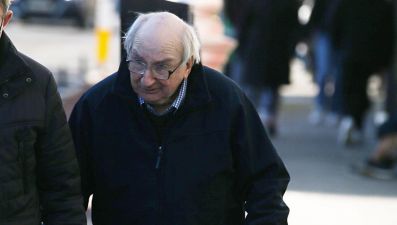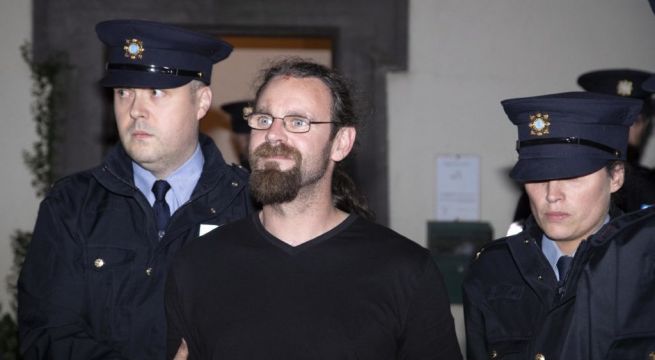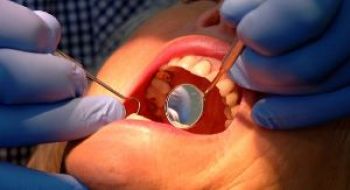The very act of shooting Garda Colm Horkan should “raise questions” about Stephen Silver’s mental capacity, a defence barrister has told the Central Criminal Court.
In his closing address to the jury this morning on Friday, defence counsel Dominic McGinn SC said the shooting of Garda Horkan was “not a rational act” and there was no rational basis or motivation for what happened.
Mr McGinn described Garda Horkan’s death as “a terrible tragedy” that “should not have happened".
“Garda Horkan was trying to do his job to the best of his ability and should not be gunned down in the street,” he said.
“Nobody got up on the 17th of June expecting this to happen or planning this to happen but it did.”
He told the jury Mr Silver’s behaviour while in custody was “erratic”, and included urinating in his cell, banging his head off a wall and pacing around.
He said Mr Silver did not display a lot of “intact social functioning” on the day of the killing and pointed to the manner in which the accused behaved and spoke to gardaí in the garda station, his shouting in the street and pacing up and down.
“Shooting a garda. That’s not intact social function,” he said, adding the natural conclusion from this was that Mr Silver was in a relapse of his bipolar affective disorder at the time.
Mr McGinn said consultant psychiatrist Professor Harry Kennedy was “confident that mental illness played no part in the shooting”, but said Dr Brenda Wright, interim clinical director at the Central Mental Hospital, had given detailed evidence setting out her belief that Mr Silver’s mental illness was a significant factor at the time.
Mr Silver has pleaded not guilty to the murder of Gda Horkan knowing or being reckless as to whether he was a member of An Garda Siochana acting in accordance with his duty at Castlerea, Co Roscommon on June 17th, 2020.
He has pleaded guilty to manslaughter and the jury have been told the main issue in the trial is Mr Silver’s state of mind at the time of the shooting.
Garda interviews
Mr McGinn told the jury they had seen for themselves Mr Silver’s behaviour during garda interviews and said that while he wasn’t going to go through it all, he had no doubt this had a “searing effect on your mind in terms of how he presented.”
He said the accused showed “no appreciation of the situation he was in” and kept coming back to “I didn’t do anything, why am I here?”
He said Dr Wright described this and other behaviour, such as Mr Silver rubbing his feet and fixing the blinds, as examples of “disinhibited behaviour”.
Counsel said shooting Garda Horkan was “not a rational act” and was not a “targeted attack” or a deliberate attack on a garda. It was instead, he contended, a chance encounter.
“There’s apparently no rational basis or motivation for what happened so the very act of shooting Garda Horkan should raise questions about his mental capacity because it doesn’t make sense,’ he said.
Mr McGinn said that as a human being, “emptying a gun” into someone for no reason implies the gunman’s reason isn’t intact.
“So yes it’s a deliberate attack but it’s not a rational act,” he said. “That’s not how people operate, that’s not now society operates.
The lawyer said Mr Silver suffered “an extremely significant relapse” of his bipolar affective disorder when he was admitted to the Central Mental Hospital on June 23rd and stayed there for 10 months.
He said Dr Greg Kelly, a Castlerea based GP who saw Mr Silver a number of times over the course of his time in custody, saw him presenting in a number of ways and had given evidence that the accused’s presentation was “completely inappropriate” for where he was.
Dr Kelly had told how Mr Silver was at times “manic” and at other times “elated”, Mr McGinn said.
Mr McGinn told the jury the recordings of the interviews Mr Silver took part in while in custody were very important because they are one of the only things in the case that are “completely objective and independent”.
“One of the things you have to decide is whether that behaviour was consistent with normality in any form,” he said.
Mr McGinn said Professor Kennedy was “confident that mental illness played no part in the shooting”.
“You have to decide whether or not that is a stateable proposition. He said that showed simply his normal personality,” he added.
Witness evidence
Counsel said the trial had heard evidence from witnesses, including Mr Silver’s sister Marian Bruen, that there was no suggestion he had those personality traits when he was well.
“There’s no evidence to suggest that Mr Silver, when he’s well, behaves in the appalling way that he did in the garda station,” he said.
He said Professor Kennedy’s contention of “learned impunity” was “contradictory”.
Mr McGinn said Stephen Silver had acted violently and had shown aggression in the past but on every other occasion when this had happened, he had been admitted to psychiatric care.
He said Professor Kennedy had argued that Mr Silver had contrived a situation to get away with a serious crime.
“That he put on a performance, that’s what’s being suggested,” he said. “That he put on that performance before the fatal shooting and carried on this performance until he’s admitted to the Central Mental Hospital. That he has contrived a performance that morphs into a full blown relapse of his illness.
“I suggest to you that’s not a credible explanation for what is going on.”
He said if that was how Mr Silver behaved in “normal life” then it could have been expected that he would have interacted with gardaí an awful lot more and pointed out that Mr Silver only had one previous conviction for driving without insurance.
He said the prosecution had asked who is the real Stephen Silver and said that is what the jury have to look at.
“Is the man on the DVD, is that how he is in everyday life, or is that how he is when he’s suffering from bipolar affective disorder?" counsel asked.
Relapse
He said what was known was that in June 2020 Mr Silver did have another relapse.
Counsel told the jury: “What you have to decide is if that was just coincidental and followed on from the stress of the events of being charged or if that relapse was caused by things that had happened in the days prior to that.”
He said a relapse could happen for all sorts of reasons, perhaps it was the stress of his marriage breaking up and having to move into the shed where he worked or perhaps it was the stress of his business with all that Covid entailed.

Mr McGinn said Dr Wright had given very comprehensive evidence to the trial as to why she believed Mr Silver was suffering a relapse of his bipolar disorder at the time.
Counsel said the jury had to decide, on the balance of probabilities, whether or not the accused was suffering from a mental disorder at the time. He said they then had to decide whether the effect of that disorder was such as to diminish his responsibility.
He said Dr Wright has said that his mental illness was a significant factor at the time..
The trial continues on Monday when Ms Justice Tara Burns will give her charge to the jury.







